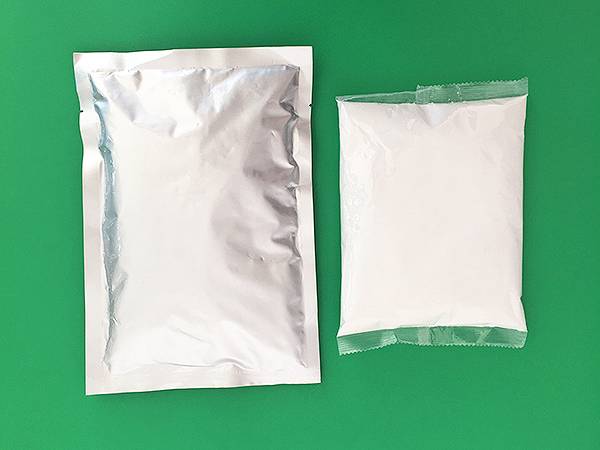



bulk sodium chlorate
Understanding Bulk Sodium Chlorate Uses, Properties, and Safety
Sodium chlorate (NaClO3) is an inorganic compound that is widely used in various industries due to its unique properties and versatile applications. Specifically, bulk sodium chlorate refers to large quantities of this chemical, which is essential for different manufacturing processes, particularly in the production of chlorine dioxide and as a herbicide. This article delves into the characteristics, uses, and safety considerations associated with bulk sodium chlorate.
Properties of Sodium Chlorate
Sodium chlorate is a white crystalline solid that is highly soluble in water. It has a molecular weight of approximately 106.44 g/mol and is primarily produced through the electrolysis of a sodium chloride solution. The chemical structure of sodium chlorate features a chlorate ion (ClO3-) linked to a sodium ion (Na+), making it an effective oxidizing agent. This property is critical in various reactions, leading to its broad usage in different sectors.
Industrial Applications
1. Production of Chlorine Dioxide One of the principal applications of sodium chlorate is in the production of chlorine dioxide, a powerful bleaching and disinfecting agent. The reaction between sodium chlorate and hydrochloric acid produces chlorine dioxide, which is utilized extensively in the pulp and paper industry for bleaching processes. This method is environmentally friendly compared to traditional chlorine bleaching, as it generates fewer harmful by-products.
2. Herbicide Sodium chlorate is recognized for its herbicidal properties, particularly effective against a broad spectrum of weeds and unwanted vegetation. Farmers and agricultural producers often use it to manage non-crop areas, rights-of-way, and in industrial vegetation management. However, due to its high toxicity to plants, it must be applied judiciously to avoid damaging desirable vegetation.
3. Oxidizing Agent Sodium chlorate serves as a powerful oxidizer in various chemical reactions. In the laboratory and chemical manufacturing, it is employed to produce other chlorates and hypochlorites, which have their own set of uses in disinfection and water treatment processes.
4. Textile and Leather Industries In the textile and leather industries, sodium chlorate plays a role in the bleaching and finishing processes. Its ability to provide consistent bleaching effects is valued in the production of high-quality fabrics and leathers.
bulk sodium chlorate

Safety and Handling
While sodium chlorate is a valuable industrial chemical, it also poses several safety hazards. It is classified as a strong oxidizer, meaning it can enhance the combustion of materials and therefore should be handled with care. Here are important safety considerations when dealing with bulk sodium chlorate
- Storage Sodium chlorate should be stored in a cool, dry place away from combustible materials. It is essential to keep the chemical in its original container, tightly sealed, and clearly labeled to prevent accidental misuse.
- Personal Protective Equipment (PPE) When handling sodium chlorate, appropriate PPE, including gloves, goggles, and protective clothing, should be worn to minimize the risk of skin or eye contact. In case of exposure, immediate washing with plenty of water is crucial.
- Disposal Proper disposal methods for sodium chlorate must be followed to prevent environmental contamination. Local regulations should be consulted regarding hazardous waste disposal procedures.
- Emergency Procedures In the event of a spill or exposure, it is important to have an emergency plan in place. A detailed spill response protocol, including the use of absorbent materials, containment, and disposal, should be established.
Conclusion
Bulk sodium chlorate is a pivotal chemical in various industries, primarily due to its role in producing chlorine dioxide, its applications as a herbicide, and its properties as an oxidizing agent. However, the handling and use of this compound require thorough safety measures to mitigate its potential hazards. As industries continue to seek effective solutions for bleaching and disinfection processes, sodium chlorate remains an essential chemical, illustrating the balance between utility and safety in industrial applications. Understanding its properties and adhering to safety protocols will ensure responsible use and effective application in multiple sectors.
-
Why Sodium Persulfate Is Everywhere NowNewsJul.07,2025
-
Why Polyacrylamide Is in High DemandNewsJul.07,2025
-
Understanding Paint Chemicals and Their ApplicationsNewsJul.07,2025
-
Smart Use Of Mining ChemicalsNewsJul.07,2025
-
Practical Uses of Potassium MonopersulfateNewsJul.07,2025
-
Agrochemicals In Real FarmingNewsJul.07,2025
-
Sodium Chlorite Hot UsesNewsJul.01,2025










